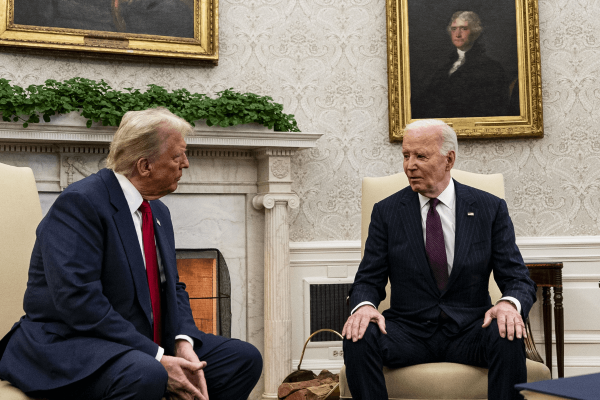“Why are those white supremacists also anti-Semites? Jews look white to me,” I hear Andrea comment as I am making my way back after serving myself a second bowl of chicken tortilla soup.
Our two families are having our “last supper,” as I am leaving the church we started together to serve as the manager of diversity and reconciliation in PCUSA, where I am tasked with growing a diverse church — something that seems both more necessary and daunting now.
The Anti-Semitic chants at the white supremacist rally in Charlottesville, Va. expose a dirty secret about the American church. It has been the main perpetrator of racism. It’s a shameful thread that shows up as essential in the teachings of many church leaders through history. The thread runs even to the church’s early years.
Anti-Semitism is a religious sentiment.
In the first millennium of the Christian era, leaders in the European Christian (Catholic) hierarchy solidified as doctrine ideas that all Jews were responsible for the crucifixion of Christ. They believed the scattering of the Jewish people was punishment both for past transgressions and for continued failure to abandon their faith and accept Christianity.
In the 10th and 11th centuries, these doctrines about Jews were hardened and unified in part because of their threat to the church hierarchy from the impending split between Roman Catholicism and Greek Orthodoxy.
Luther spewed anti-Semitic theology. He suggested setting fire to synagogues or school in his work On the Jews and Their Lies. He suggested that Jewish houses “be razed and destroyed,” and Jewish “prayer books and Talmudic writings, in which such idolatry, lies, cursing, and blasphemy are taught, [should] be taken from them.” In addition, “their rabbis [should] be forbidden to teach on pain of loss of life and limb.”
White supremacy has been a staple in much of the American and European Church. This marriage of racism to the gospel is proudly displayed on a mantle when people say America was founded on Christian principles. The so-called return to Christian values means a return to a time when white supremacy was uncontested philosophy and policy.
The mishmash of anti-Semitism and racism is the churnings of the church legitimizing both worldviews in the name of Christ.
It wasn’t too long ago when good “law abiding” Christian mothers would picnic with their children to see a black man tarred and hung. Fathers used the occasion as a lesson to their sons about justice and the “biblical” doctrine of race while police would sit on their cars, sirens and radio off. Racism was the norm. The white supremacists chant of “we will not be replaced” is correct in this sense that white supremacy was the god of the land.
Christian faith in America has been interpreted in a way that upholds the tenets of white supremacy. These cultural values, which have been intertwined into mainline American Christianity, protect and uphold the system of white supremacy. Growing in a Korean immigrant church, I remember taking notes on sermons and Bible studies by Korean pastors exegeting Noah’s judgment on his children as the judgment of the races. These Korean pastors didn’t get that racial doctrine from careful study; it was the doctrine taught by white missionaries who loved Christ enough to sacrifice comfort and family, but whose heart also belonged to another god, a white god.
Judging the white supremacists as a fringe group, foreign to the American soil, and the extremists as non-Christians despite their church membership is an avoidance of the identity-tearing work of repentance. It is an act of denial so subtle it might not even register at the conscience level. Calling their acts terrorism is truth telling, but calling them extremists is exculpating ourselves by fiat. Our judgment of them can become an act of self-righteousness. If we too don’t stand under judgment, then then we disqualify ourselves for God’s redemption. God saves those God judges.
The American church must repent for its paganism. We must recognize the Moloch we erected next to the cross. As much as Israel was for most all of its history, despite the Mosaic laws and the temple, erecting shrines, so has the American church. We must confess that we have knelt before the god of whiteness.
The extremism of the white supremacists is fed by the subtle racism that is practiced and condoned in our Sunday worship division. The way we favor white males for our face-to-face leaders, the low level of tolerance for conversations on racism, and how the churches we plant support gentrifications, prove that we keep serving the white God. Though our lips mouth Jesus, our hearts are divided.
Repentance must take the form of protest and works of justice at large scale and systemic levels against unjust laws and extremists. Yet, the most important repentance still remains our hearts and how we relate in our local congregations and communities. Personal repentance doesn’t negate or relativize public repentance, but we must remember that the personal is a most public place.
Let’s not forget to shatter the false gods in our local congregations and communities as well as in our hearts.
Got something to say about what you're reading? We value your feedback!







